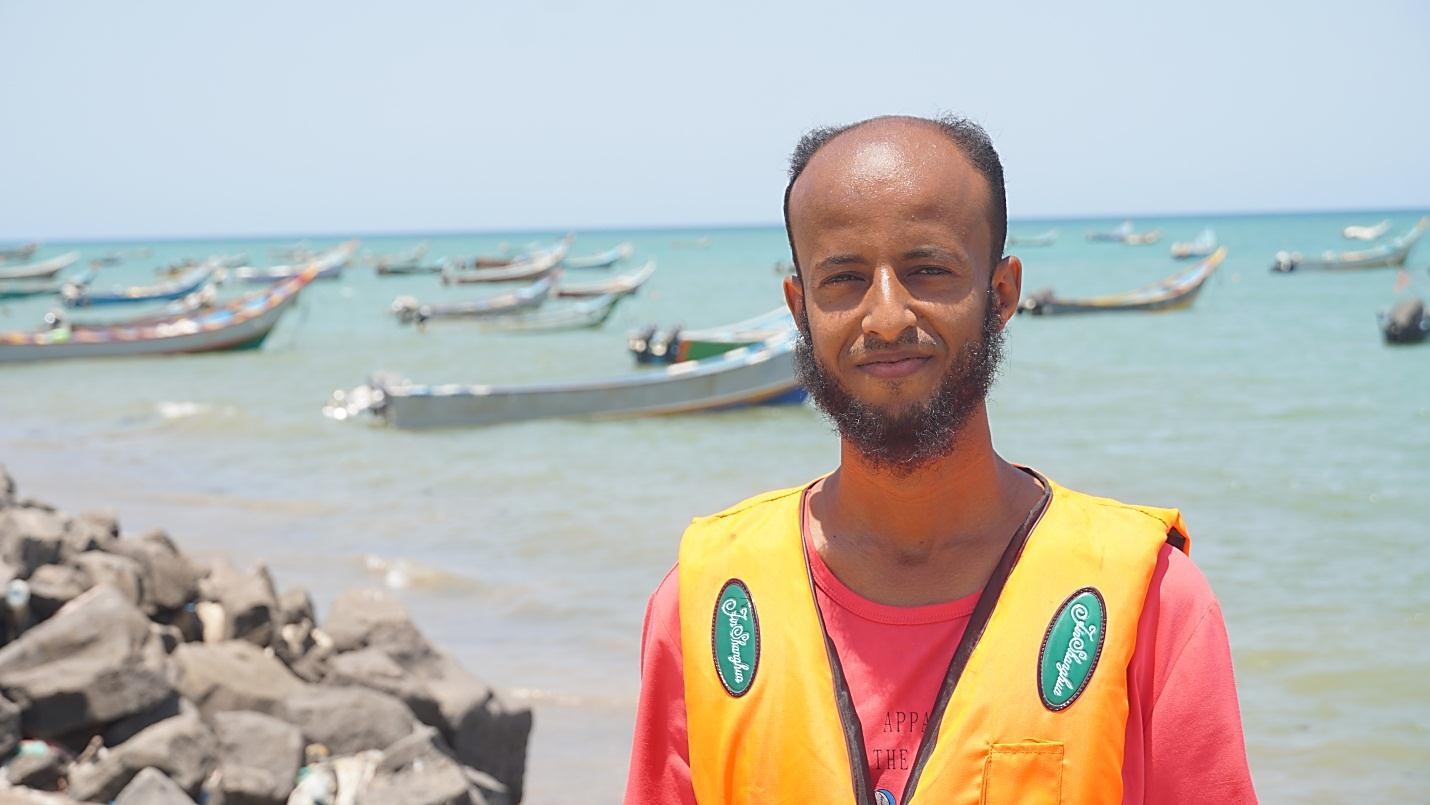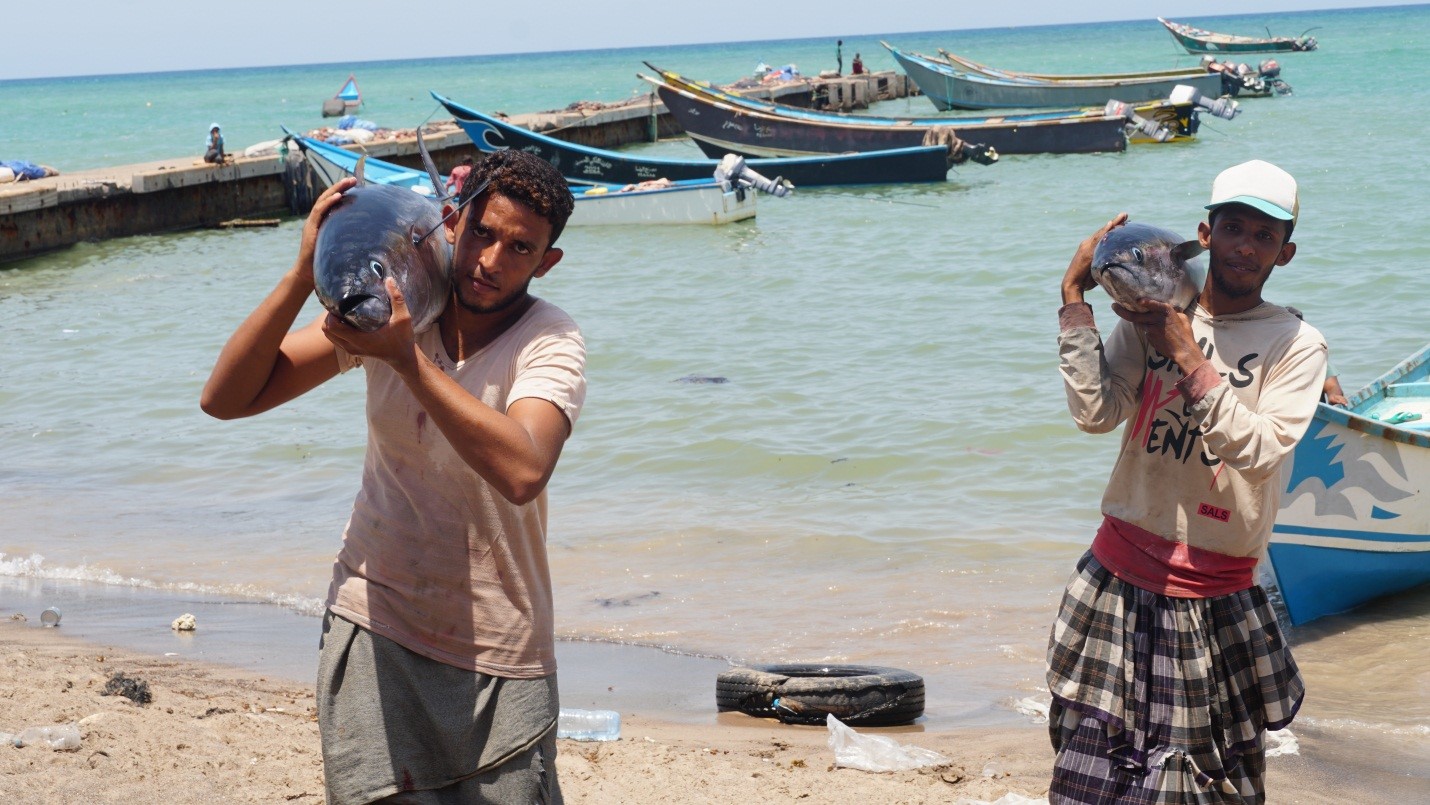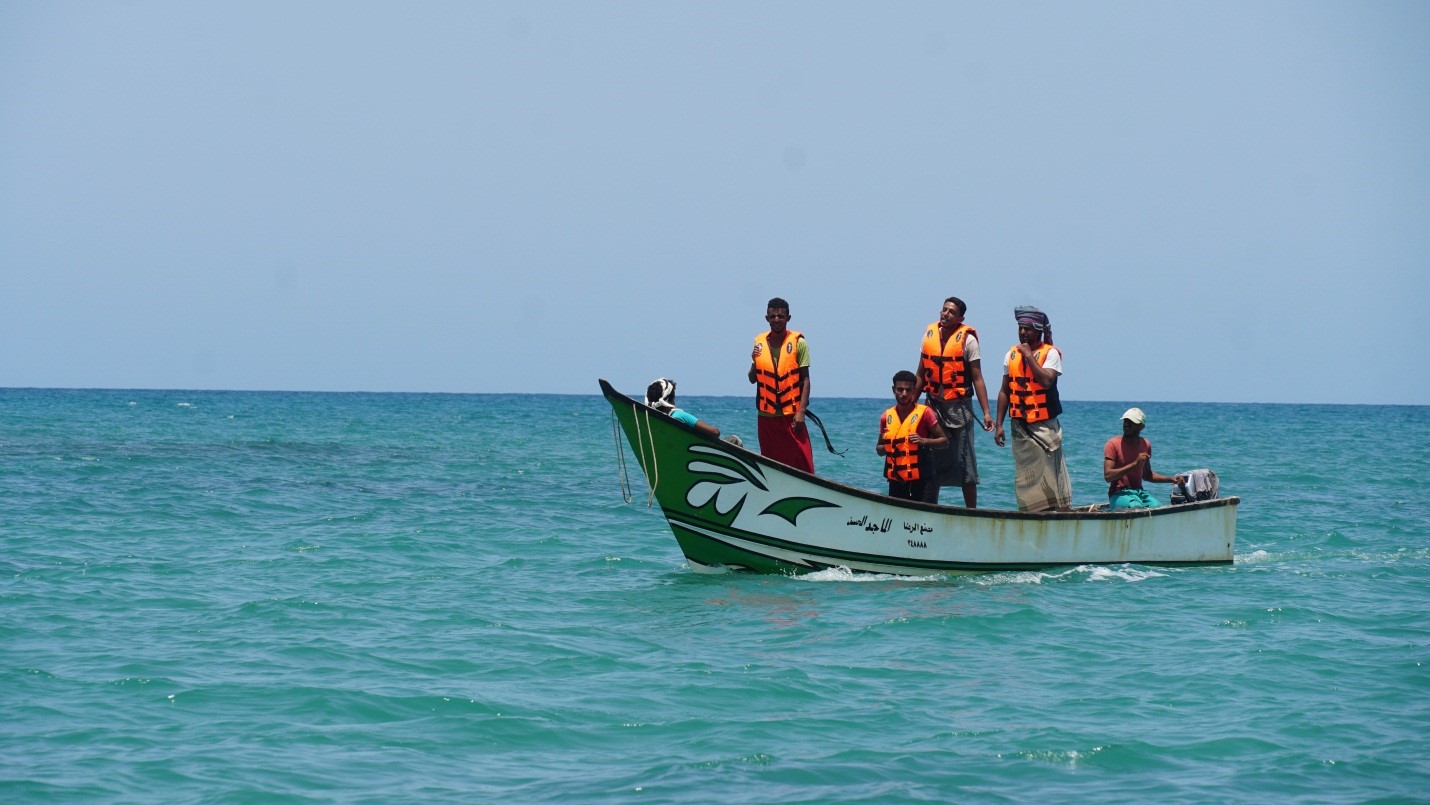“In my community, fishing was often practiced as a source of supplementary food need, not as a business. But with the difficult economic conditions and the increasing unemployment rate, more young people are tending to work in fishing to provide for their families,” says Ashraf Badr Saleh Sheikh, a 40-year-old fisherman from Shuqrah city in Abyan’s Khanfar district.
Ashraf lives in the coastal city of Shuqrah with his wife and their three children. After graduating from university, he started to work as a fisherman. Shuqrah city is one of the cities that has been hardest hit by the six-year-long conflict in Yemen. The conflict around the city has disrupted people’s access to basic services such as electricity, water and healthcare services. Limited access to fresh fish and other food crops negatively affects food security and malnutrition levels in the city.
“Shuqrah city was once known for its excellent fish,” says Ashraf. The fishing industry was one of the greatest contributors to Yemen’s GDP after oil and it was of great importance to the economy, providing the main source of food security, earning and employment for the majority of Yemenis living in coastal areas. The ongoing conflict, coupled with climate change in recent years, have devastated the fisheries sector in Yemen. With the outbreak of the conflict in 2015, several landing sites were wiped out, many fishermen lost their boats, and the infrastructure was destroyed.


